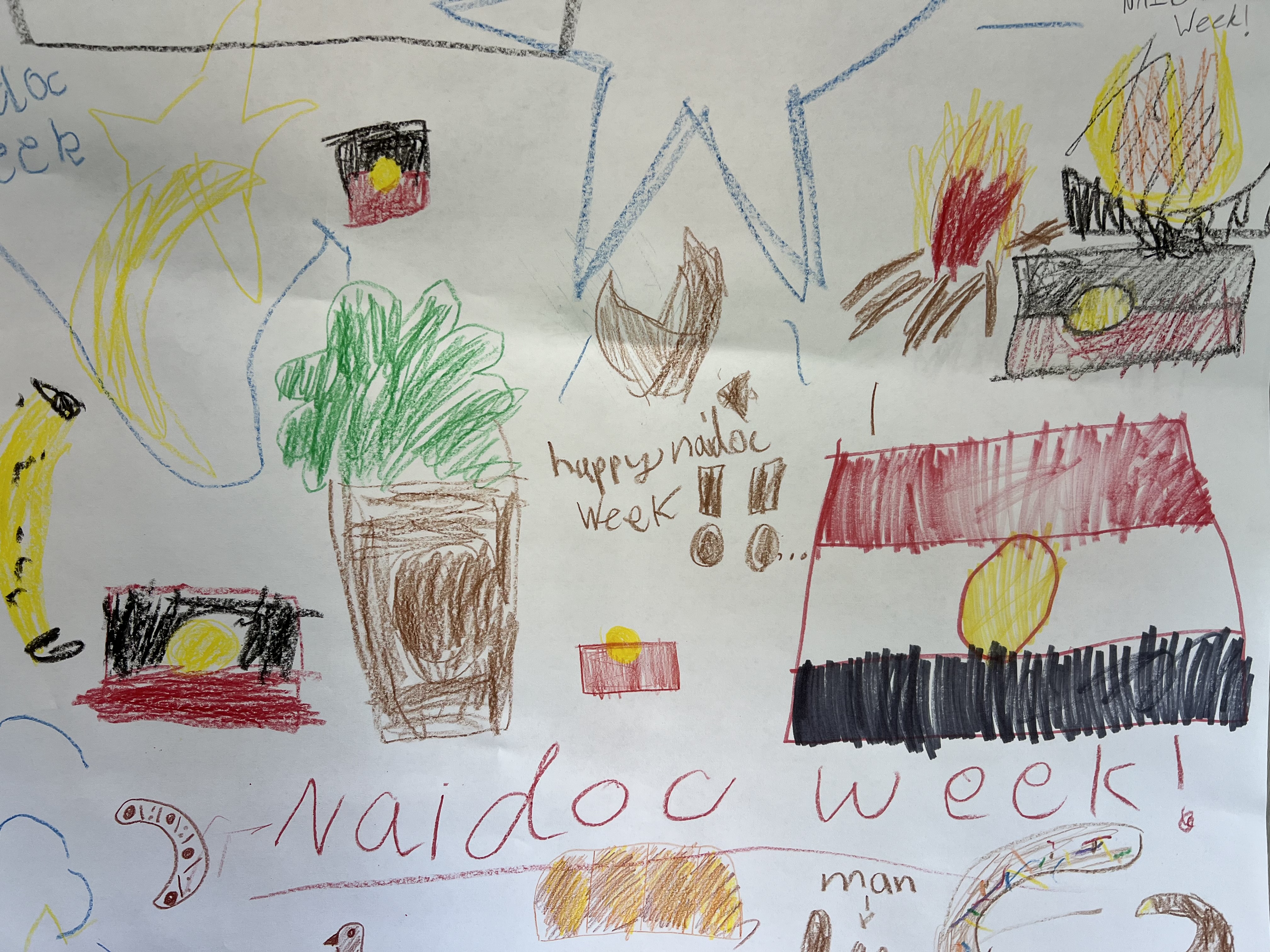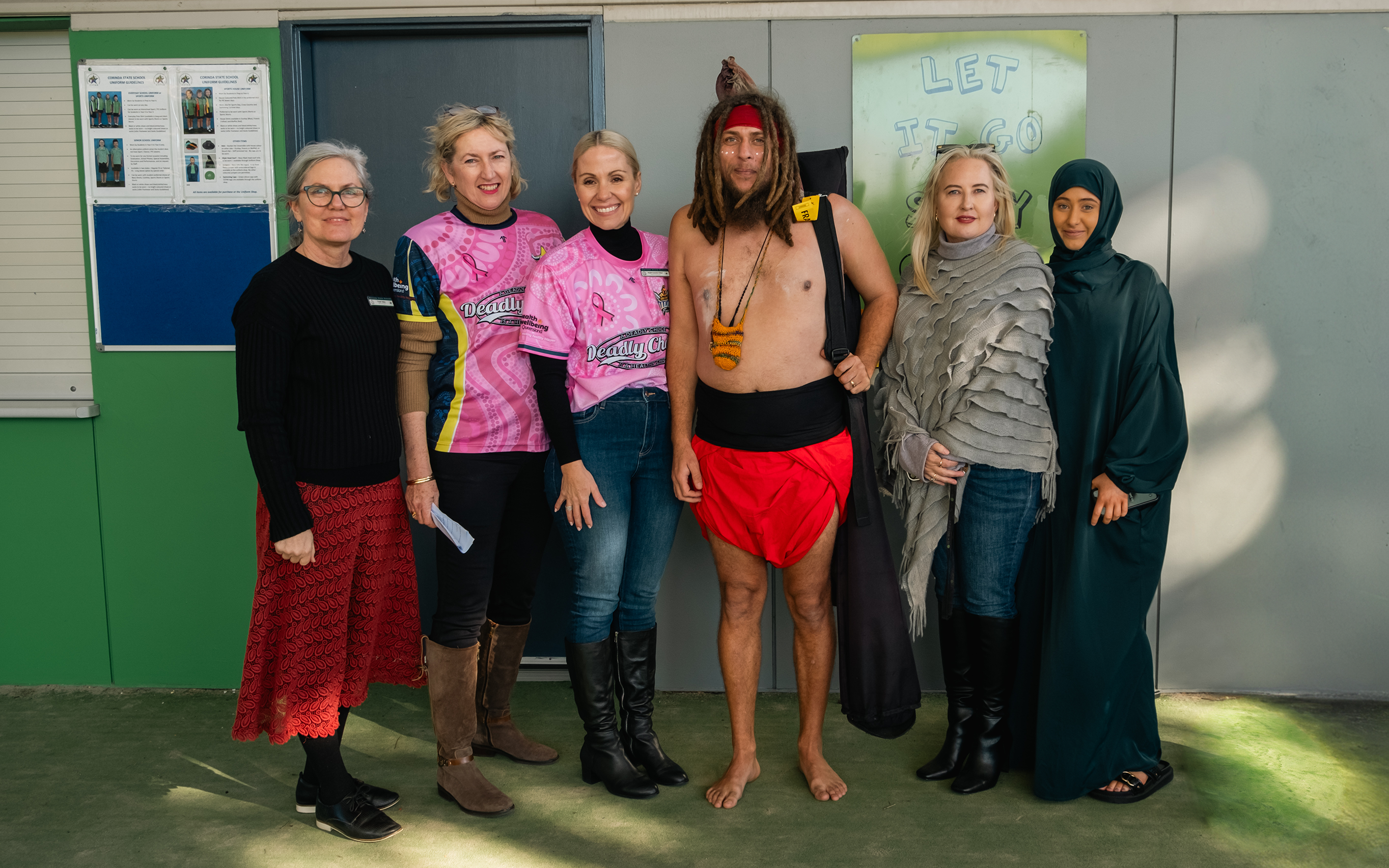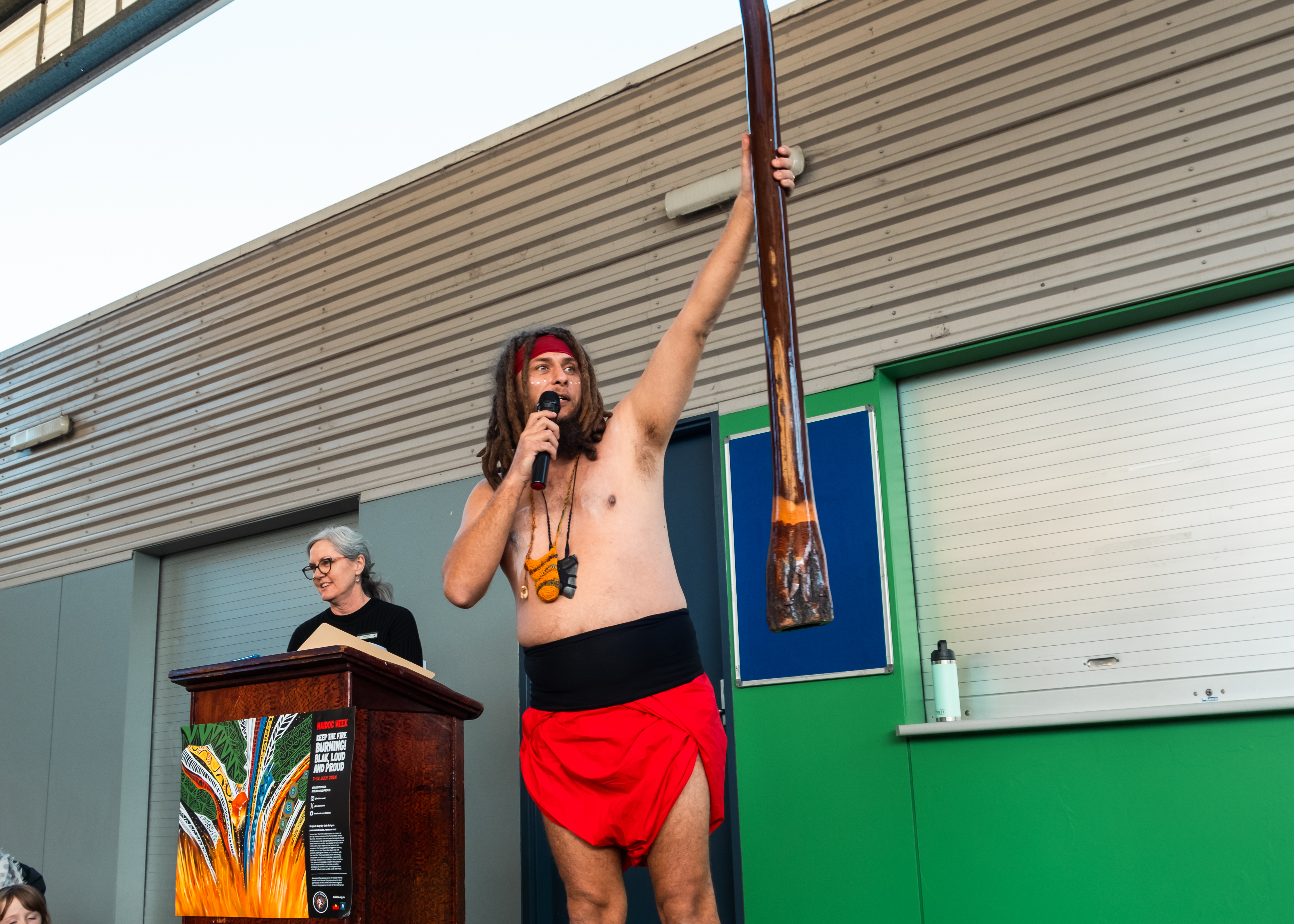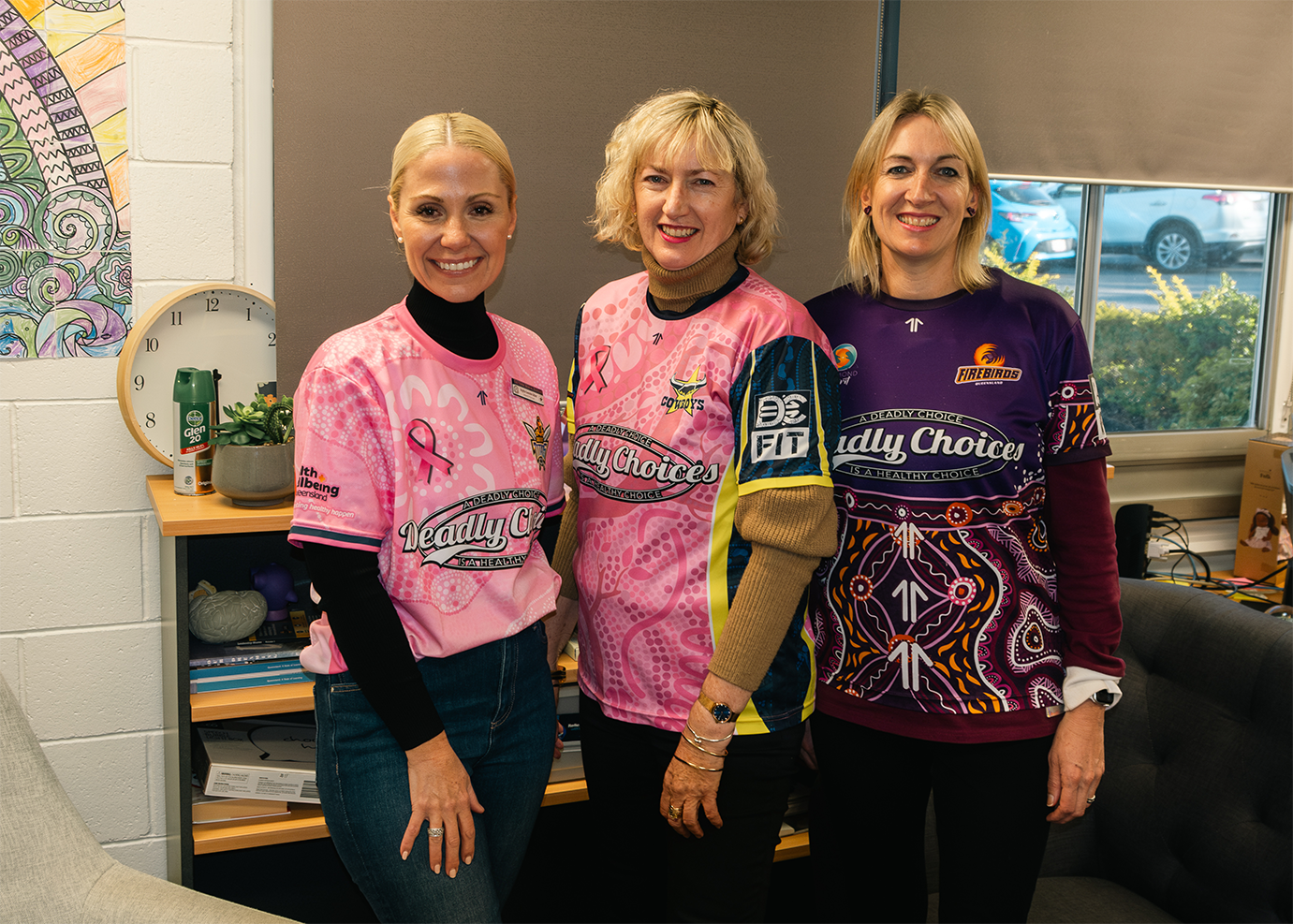Corinda State School held their NAIDOC event on Wednesday, demonstrating their commitment to Indigenous and non-Indigenous students all year round.
The school, located near Benarrawa (Oxley River) and Maiwar (Brisbane River), focuses on creating a sense of belonging by embracing diversity and maintaining an inclusive, respectful educational environment.
The NAIDOC proceedings began with cultural sessions led by Aunty Ebony, who guided each age group through Indigenous LORE, customs, and traditions.
She showcased artefacts like the nulla nulla, coolamon and hunting boomerangs, engaging students who eagerly asked questions.
"It's been a great day, they really enjoyed it," said Aunty Ebony.
"I remember growing up in school being told that the settlers were the first ones here... So I think there should be a lot more of this, especially from someone who is First Nations.
"I keep the fire burning by having elders come and talk and keeping the culture alive by education, just like they did here today."
After each session, students drew pictures reflecting their new knowledge, further solidifying their understanding and acknowledging Australia's history.

Principal Carmel Herbert emphasised the school's dedication to respecting and valuing their unique location.
"We're very fortunate that our place is this pretty amazing place, we really respect that and value it," she said.
"We encourage our children to be on land and be on country.
"Connecting to place is in our strategic plan - it's something we really talk about a lot... and we think about our place as part of who we are at Corinda."

Following the cultural sessions, Kombumerri and Nunukul man Max Dillion, also known as Kupae, played the didgeridoo for students and parents.
His interactive performance, which involved students acting out movements of animals like the kangaroo and dingo, was both informative and engaging.

"What I'm doing here is I'm showcasing culture, keeping the fire alive and burning," he said.
"It's about passion. My job is about passing on that torch.
"My job is to get the passion and culture and instil it in their hearts and minds."
Deputy Principal Brigitte Guenzler-Gilbert highlighted the school's holistic approach to learning.
"You won't just see us embedding Indigenous perspectives through curriculum; whilst that is our priority, we like to take our learning beyond the classroom," she said.
"Our nature-play and yarning circle area is really important, starting from prep.
"So by the time students start at Corinda, we're already introducing them to country."

Corinda State School has a program called 'Little Mob', where Indigenous students can spend time with friends, learn about their culture, and build pride.
"Little Mob is a big part of how we bring this into our every day learning," Principal Herbert said.
"They meet regularly to talk and learn more about their culture and share things with the wider part of the school.
"The diversity and multi-culture we have here is very much an understanding of everyone and the Little Mob is apart of that."
Corinda State School's NAIDOC event not only celebrated Indigenous culture but also reinforced the school's ongoing dedication to fostering an inclusive community where all students can thrive on country together.

